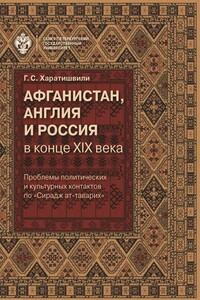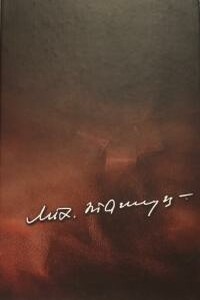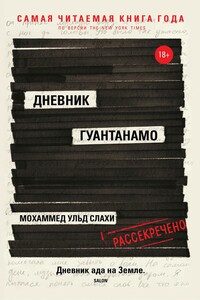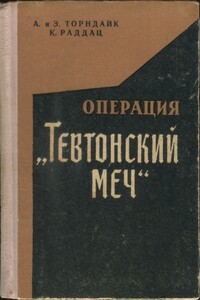The Run of His Life: The People v. O. J. Simpson - [15]
Simpson’s dog-a black chow-did not stir as the detectives passed it on their way to the front door. Vannatter knocked. No answer. They waited two or three minutes, knocked again, and still heard no stirring inside. The four detectives decided to take a look around, and so, still using flashlights in the moments before dawn, they walked together toward the rear of the house. There they saw a row of three guest houses, though they were really more like connected rooms, each with its own entrance. Phillips peered into one.
“There’s-I see someone inside,” he said.
Phillips knocked, and almost immediately a disheveled man who obviously had just awoken answered the door. Shaking his mane of blond hair out of his eyes, Kato Kaelin stared at Phillips, who identified himself and asked, “Is O.J. Simpson home?”
The groggy Kaelin said he didn’t know, but suggested the officers knock at the adjacent guest house, where Simpson’s daughter Arnelle lived. Phillips, accompanied by Vannatter and Lange, then knocked on Arnelle’s door. Fuhrman stayed behind and asked Kaelin if he could come in. Fuhrman noticed that Kaelin seemed disoriented, even for someone who had just awakened. Fuhrman gave Kaelin a standard police test for intoxication: Holding a pen about fifteen inches in front of Kaelin’s face, he watched to see if Kaelin could follow it with his eyes. Kaelin passed-he just looked zonked. Fuhrman asked to look around the small suite. As Fuhrman poked around-among other things, checking the shoes in the closet for blood-the detective asked if anything unusual had happened the previous night.
As a matter of fact, something unusual had happened. At about 10:45 P.M., while he was talking on the telephone, Kaelin said, there were some loud thumps on his bedroom wall, near the air conditioner. The jolts were so dramatic that a picture on the wall was jostled. He had thought there was going to be an earthquake.
The two men chatted a while longer, then Fuhrman walked with Kaelin into the main house, where the other three detectives were speaking with Arnelle Simpson. Fuhrman then decided to follow up on what Kaelin had told him. He left Kaelin in the house with the other detectives, walked back outside, and tried to orient himself to see what faced the south wall of Kaelin’s bedroom-the wall where Kaelin had heard the loud noises. Fuhrman saw that the south wall faced the edge of Simpson’s property, which was marked by a Cyclone fence, and that there was a narrow passageway between the back of the guest houses and the fence.
“I took out my flashlight and I started walking down the path trying to figure out the residence architecture to figure out where Kaelin’s wall might have been,” Fuhrman testified later. “I saw a long, dark path covered with leaves.” When Fuhrman had walked about twenty feet along the path, he saw a dark object on the ground, but it wasn’t until he was practically upon it that he realized what it was. “At some point,” Fuhrman remembered, “I could tell that it was a glove.”
It looked out of place. There were no leaves or twigs on it, and the glove looked moist or sticky, with some parts adhering to one another. Fuhrman stepped around the glove and kept walking along the path, but he started hitting cobwebs, which he had not previously encountered. He followed the path all the way to the end, which was an untended patch of dirt, then headed back out, passing the glove once more. He didn’t touch it, but he noticed something about it: “It looked similar to the glove on the Bundy scene.”
While Fuhrman had stopped in Kaelin’s room to talk to him, the other three detectives had knocked on Arnelle Simpson’s door, which she promptly answered. Phillips told her there was an emergency, and he needed to speak to her father-did she know how to reach him? Arnelle gestured to the main house and asked, “Isn’t he there?” The officers told Arnelle that her father was apparently not there. Leaving her guest house, Arnelle began walking toward the Ashford gate to see if her father’s car was there-that was where he usually parked it. The detective informed her that the Bronco was in fact parked on Rockingham. Using her key, Arnelle let them into the main house.
On the way they passed the third guest house-it belonged to the housekeeper, Gigi Guarin-and noticed that it was empty, the bed still made. Once they were inside the main house, Arnelle called Cathy Randa, her father’s longtime secretary, who always knew O.J.’s whereabouts. Arnelle handed the phone to Phillips, who told Randa there was an emergency that required their speaking with Simpson. Randa said he had taken the red-eye flight to Chicago the previous night and was staying at an airport hotel, the Chicago O’Hare Plaza.
Phillips called the hotel at 6:05 A.M. and asked to be put through to O.J. Simpson’s room. Though he recognized the voice, the detective still asked, “Is this O.J. Simpson?”
“Yes, who is this?”
Phillips chose his words carefully when he delivered news of Nicole’s death to O.J. “This is Detective Phillips from the Los Angeles Police Department. I have some bad news for you. Your ex-wife, Nicole Simpson, has been killed.”

Книга представляет собой исследование англо-афганских и русско-афганских отношений в конце XIX в. по афганскому источнику «Сирадж ат-таварих» – труду официального историографа Файз Мухаммада Катиба, написанному по распоряжению Хабибуллахана, эмира Афганистана в 1901–1919 гг. К исследованию привлекаются другие многочисленные исторические источники на русском, английском, французском и персидском языках. Книга адресована исследователям, научным и практическим работникам, занимающимся проблемами политических и культурных связей Афганистана с Англией и Россией в Новое время.

"Великий человек, яркая личность, Божий дар Беларуси" - так Михаила Николаевича Пташука называли еще при жизни наши современники и с любовью отмечали его уникальный вклад в развитие отечественного, российского и мирового кинематографа. Вклад, требующий пристального внимания и изучения. "И плач, и слёзы..." - автобиографическая повесть художника.

Тюрьма в Гуантанамо — самое охраняемое место на Земле. Это лагерь для лиц, обвиняемых властями США в различных тяжких преступлениях, в частности в терроризме, ведении войны на стороне противника. Тюрьма в Гуантанамо отличается от обычной тюрьмы особыми условиями содержания. Все заключенные находятся в одиночных камерах, а самих заключенных — не более 50 человек. Тюрьму охраняют 2000 военных. В прошлом тюрьма в Гуантанамо была настоящей лабораторией пыток; в ней применялись пытки музыкой, холодом, водой и лишением сна.

В книге рассказывается история главного героя, который сталкивается с различными проблемами и препятствиями на протяжении всего своего путешествия. По пути он встречает множество второстепенных персонажей, которые играют важные роли в истории. Благодаря опыту главного героя книга исследует такие темы, как любовь, потеря, надежда и стойкость. По мере того, как главный герой преодолевает свои трудности, он усваивает ценные уроки жизни и растет как личность.

Брошюра написана известными кинорежиссерами, лауреатами Национальной премии ГДР супругами Торндайк и берлинским публицистом Карлом Раддацом на основе подлинных архивных материалов, по которым был поставлен прошедший с большим успехом во всем мире документальный фильм «Операция «Тевтонский меч».В брошюре, выпущенной издательством Министерства национальной обороны Германской Демократической Республики в 1959 году, разоблачается грязная карьера агента гитлеровской военной разведки, провокатора Ганса Шпейделя, впоследствии генерал-лейтенанта немецко-фашистской армии, ныне являющегося одним из руководителей западногерманского бундесвера и командующим сухопутными силами НАТО в центральной зоне Европы.Книга рассчитана на широкий круг читателей.

Книга Стюарта Джеффриса (р. 1962) представляет собой попытку написать панорамную историю Франкфуртской школы.Институт социальных исследований во Франкфурте, основанный между двумя мировыми войнами, во многом определил не только содержание современных социальных и гуманитарных наук, но и облик нынешних западных университетов, социальных движений и политических дискурсов. Такие понятия как «отчуждение», «одномерное общество» и «критическая теория» наряду с фамилиями Беньямина, Адорно и Маркузе уже давно являются достоянием не только истории идей, но и популярной культуры.